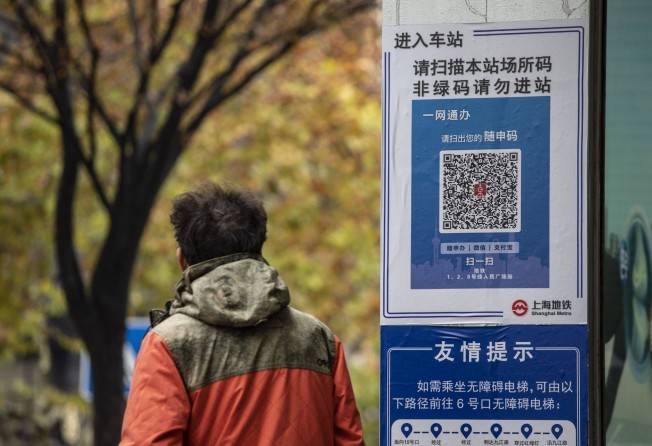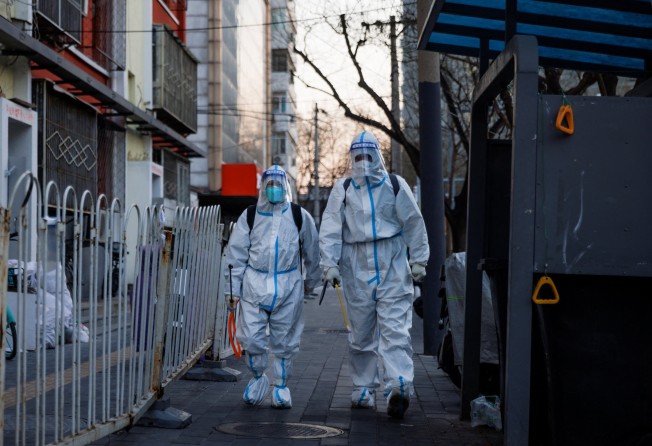
03:44
Beijing closes some Covid testing booths as China enters new phase of pandemic controls

China’s tweaks to its pandemic response and property market policies have shown that pragmatism, the governing principle instilled by Presidents Deng Xiaoping and Jiang Zemin over decades, still trumpets ideology when it comes to policy-making.
Some China watchers may cite the increased appearance of ideological phrases in the 20th party congress report to conclude that Beijing is ditching pragmatism and returning to Mao Zedong’s days of drafting policies based on ideals and visions. Such arguments might be hasty and risk diverging from China’s reality.
It should be noted that phrases such as “communism” and “Marxism” have always been used in Chinese documents and textbooks since the founding of the People’s Republic in 1949. But the specific interpretations and implications have changed.
The overriding priority for Beijing and China now is their own development, while the lofty revolutionary dream of planting red flags across the globe is already a distant memory.
China’s continued emphasis on ideological labels such as “socialism” is defensive in nature, its purpose being to maintain its political and economic system and to keep growth on track.
It is in China’s political tradition to attach an ideological label to practical goals. When Deng threw out “class struggle” from China’s policy book and replaced it with reform and opening-up, he told the party and the country that it is the right way to sustain and develop socialism.
In a similar fashion, when Jiang allowed capitalists to join the Communist Party in one of the most controversial readings of Marxist classics, he said it was the right way to reenergise the party.
Beijing’s emphasis on security, common prosperity and the state sector is in the same vein as its insistence on self-defence, and it would be wrong to confuse such ideological attachment with policy choices.
China’s shift in Covid-19 policy, albeit a bit late, shows that reality, not ideals, dictates Beijing’s policy agenda.

Chinese authorities originally wanted to use the country’s initial success in containing the virus as evidence to prove the supremacy of its governance system, but in 2022 it misjudged the nature of Omicron. Still, when the moment of truth arrived, it was willing to face reality.
It is quite possible that the whole process of reopening will gather speed after Beijing gives clearer signals to local authorities, and at the current pace, the border between the mainland and Hong Kong could reopen with no quarantine requirements before Spring Festival, which falls in January 2023.
Beijing’s 180-degree shift in its property market policy is a typical example of pragmatism.
When China imposed a policy known as the “three red lines” in 2020 to cut debt financing of domestic property developers to defuse bubbles in the real estate market, the policy was in the right direction. But it was introduced at the wrong time and added disruptions to an economy hit hard by Covid-19 control measures.
In the past couple of weeks, Chinese authorities, after seeing the bad results, rushed to play damage control, with the state banking system rushing to provide credit to developers. Some people think the policy about-face is unnecessary and reckless, but they have to admit that Beijing is following a strong tradition of pragmatism.

It is almost a complete rehash of the old days when Beijing managed its economy like dough: when the dough was too dry, it added water, and when the dough was too wet, it added more flour.
One problem with analysing Chinese policies through an ideological lens is that it can only lead to mistrust and confrontation. The People’s Republic has always been under the rule of the Communist Party, but that hasn’t stopped China from integrating and cooperating with the rest of the world.
In fact, all the messages from Chinese leaders after the 20th party congress conveyed that the country is not willing to disrupt the world order.
To be sure, China’s political opaqueness does nothing to help the country explain its policy objectives, and the dissolution of the information barrier separating China and the world has further amplified concerns aboard about Beijing’s true intentions. But it would be going too far to conclude that Beijing has given up on pragmatism.